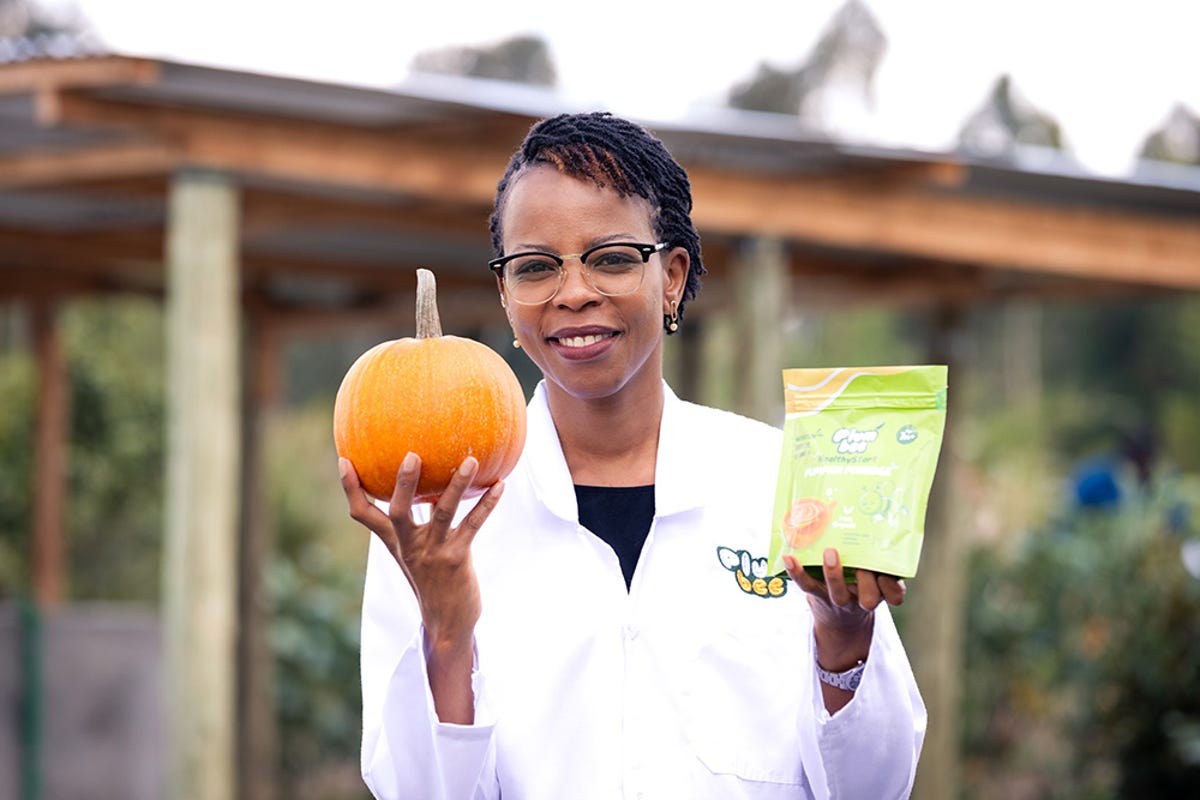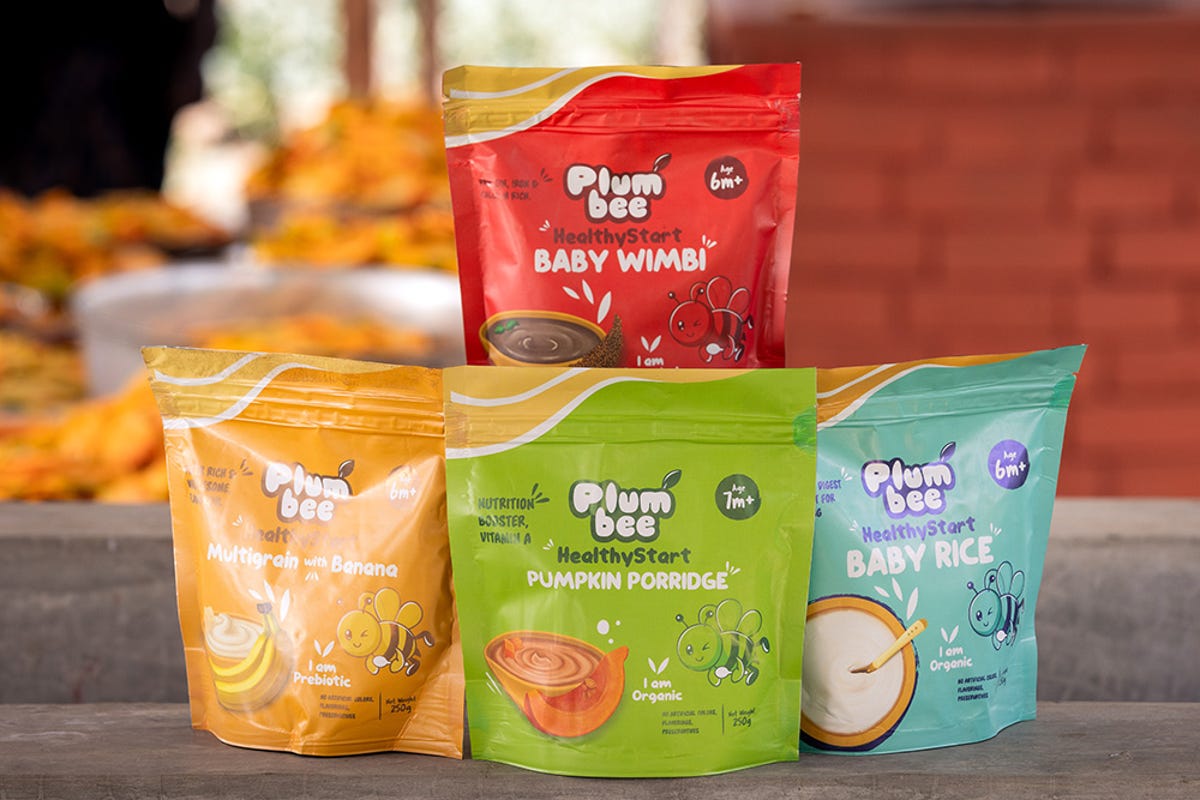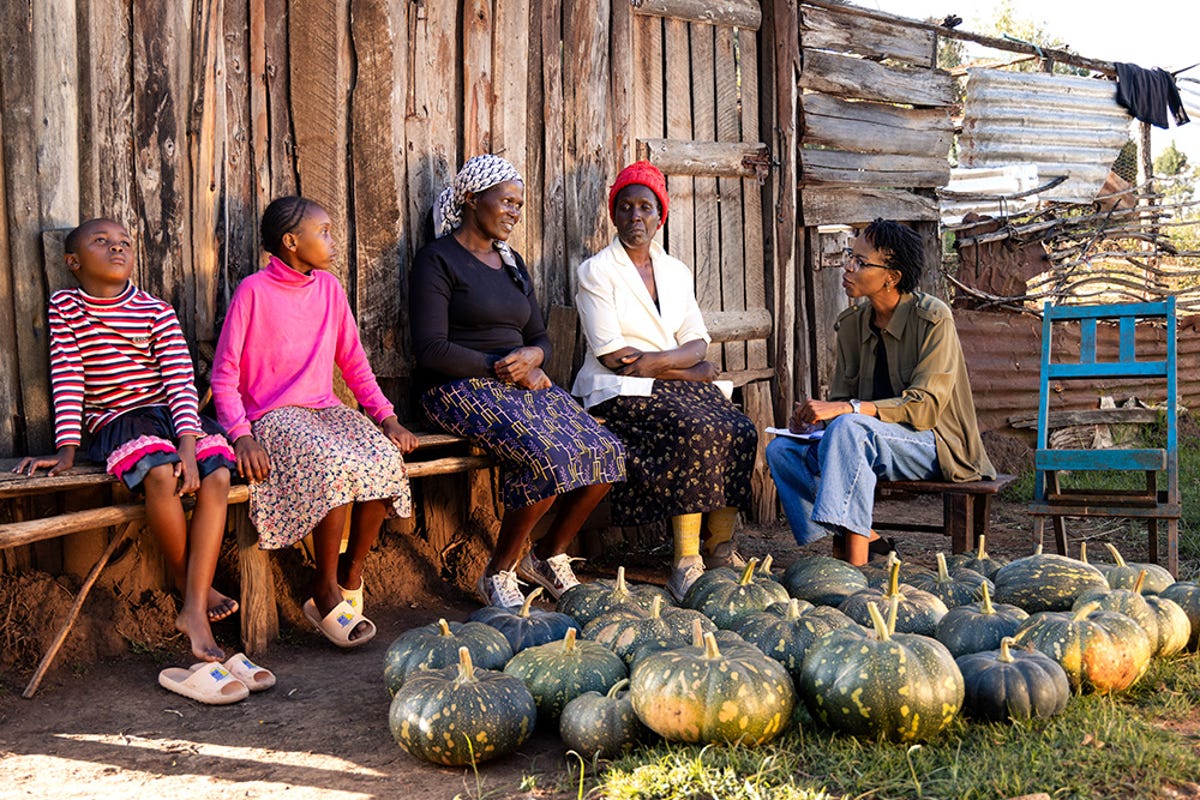Fellow Portrait
June Muchuku
Plumbee

Plumbee is a food processing company that partners with low-income women to produce and process food for underserved children in Kenya.
Anglophone and Lusophone Africa
Kenya
Fellow
2024
Updated March 2024
Malnutrition in Kenya affects a quarter of school-aged children
Low-income parents in Kenya often have trouble finding affordable and healthy food options for their school-age kids. As a result, one in four children suffer the far-reaching consequences of chronic undernutrition, which increases child mortality, impairs school performance, and diminishes economic productivity.
Growing up in rural Kenya, June Muchuku, co-founder and CEO of Plumbee Wholefoods, experienced the problem of undernutrition firsthand. Her mother, a smallholder farmer and single parent, struggled to put nutritious food on the table. “The consequences were significant,” she recalls. “I found it incredibly challenging to concentrate. I frequently fell ill, forcing me to miss many days of school. It was a harsh reality that I later discovered is shared by many children throughout Kenya.”
Childhood malnutrition isn’t something we should be talking about in this day and age. Every child deserves a healthy start.

First-hand experiences inspire a new business model for fighting hunger
June’s resolution to make a difference led to a career with organizations such as Save the Children and World Food Program. But she was dismayed by the poor-tasting food in school nutrition programs. “I thought, wouldn’t it be possible to develop a product that delivers the same nutritional value but tastes good so that little kids can enjoy it?” she says.
June left her PhD program in the UK and returned to Kenya, where she set out to create children’s meals that were affordable, healthy, and delicious. In 2021, she launched Plumbee Wholefoods, a food processing company that tackles the problem of undernutrition from two angles.
First, the company provides families with high-quality, nutritious food crafted using locally sourced ingredients and based on traditional African flavors. Plumbee’s products also address specific nutritional gaps, like iron and vitamin A deficiencies. “We understand the problem from a nutritional point of view,” June says, “so we’re designing products that are responsive to the actual needs of our target market.”
Second, Plumbee partners with rural female farmers and low-income women to grow and process the ingredients that go into its products, so that they can be part of the food production value chain. Women undergo a rigorous five-week training program that covers everything from cultivation to farming practices and food processing.
“We’re empowering our key customers to also be our business partners,” June says. “They’ll earn double what they would have earned if they’d sold produce straight from their farms.”
The kids who are getting our products are getting the same nutritional value as the children whose families can afford things like milk, eggs, and fresh fruit, which are really expensive.

Women farmers increase their earnings and learn valuable business skills
Since its launch in 2021, Plumbee has served 80,000 low-income Kenyan children with products such as porridge and organic flours. The company has trained more than 100 women farmers in agriculture, finance and food processing. In addition, it has purchased approximately US$18,500 worth of raw materials from them, representing a substantial amount for each woman, especially since Kenya’s annual per capita wages are about US$2,000.
For June, one of the most rewarding aspects of Plumbee is the newfound confidence she sees in the women she works with. “We’ve seen them develop their leadership skills and learn to advocate for themselves. That’s been very fulfilling.”
In Kenya and many parts of Africa, women are excluded from profitable value chains. We’re building a cooperative agricultural processing ecosystem that empowers women to play a central role in combating childhood malnutrition in Africa.




